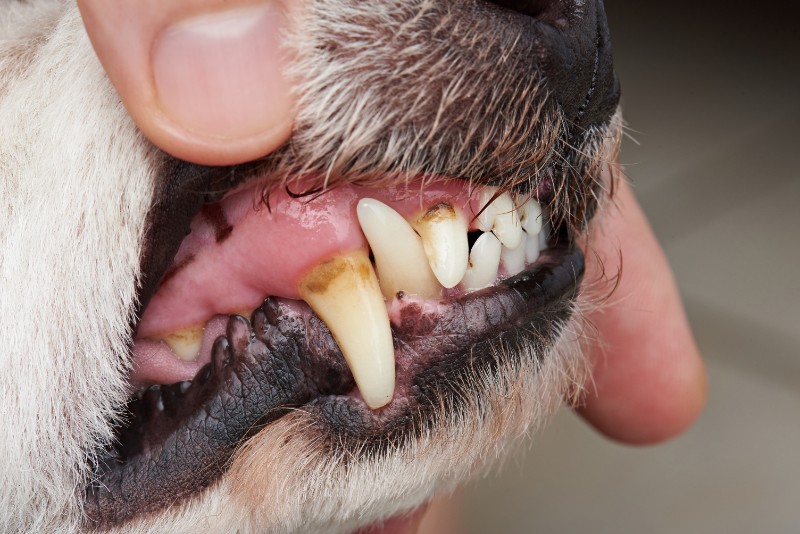Do Dogs Get Cavities?

Do dogs get cavities? Answer is yes. Just like humans, dogs can develop cavities if their oral hygiene is neglected. In this blog, we’ll explain how to identify a cavity, treatment and prevention of future cavities.
What Causes Cavities in Dogs?
Dogs who eat fermentable carbohydrates, low-quality food, and table scraps have a higher risk of developing cavities. compared to those on a high-quality diet. Additionally, dogs that receive regular dental care are less likely to develop dental caries.
A dog’s genetics may play a role in their susceptibility to cavities and other dental issues. Breeds prone to cavities often overlap with those at higher risk for dental disease. Some examples include:
- American Bulldogs
- Chihuahuas
- Dachshunds
- French Bulldogs
- Pugs
- Shih Tzu
- Standard Poodles
Symptoms of Cavities in Dogs
Detecting early signs of cavity development can be challenging. Regular veterinary dental check-ups are essential to catch and address issues before they worsen.
If your pet exhibits any of the following symptoms, it may indicate a cavity or another oral health issue. Schedule a vet appointment as soon as possible:
- Excessive drooling
- A dark spot anywhere on the tooth
- Discomfort or pain in the mouth area
- Tooth discoloration (watch for yellow or brown deposits near the gum line)
- Dropping food
- Lack of appetite
How To Treat Cavities
Your dog’s cavity treatment will depend on its severity. X-rays help your vet assess if the pulp chamber is exposed and whether the tooth’s vitality is affected.
Mild cavities can often be treated by debriding the affected area and restoring it with a filling, similar to human dental procedures. For more severe lesions, a root canal and restoration may be necessary. In extreme cases, tooth extraction is the best option.
Dental surgery, whether for cavity repair or extraction, requires anesthesia and typically lasts an hour or more. After the procedure, your veterinarian will provide post-surgical care instructions to ensure proper healing.
Recovery
After surgery, most dogs recover from anesthesia within a few hours and regain their appetite and energy within a day or two.
If your veterinarian prescribes antibiotics like clindamycin or pain medication such as carprofen, follow their dosage instructions carefully. Your vet may also advise temporarily avoiding hard foods and chew toys to protect the surgical site.
Be sure to ask your veterinarian about any necessary dietary adjustments or activity restrictions, including limiting chew toys and games like tug-of-war.
Do Cats Get Cavities?
Cats don’t develop cavities like humans. But they can develop holes in their teeth due to tooth resorption. Tooth resorption in cats occurs when the body breaks down and absorbs the tooth structure. This condition, also known as feline odontoclastic resorptive lesions (FORLs), can cause significant dental issues and discomfort. Just like dogs, cats require regular teeth cleaning and annual check-ups.
Questions Regarding Your Dog’s Dental Health?
If your dog is experiencing bad breath, tartar buildup, or difficulty eating, reach out to us right away—we’re here to help! Learn more about pet oral care here.



